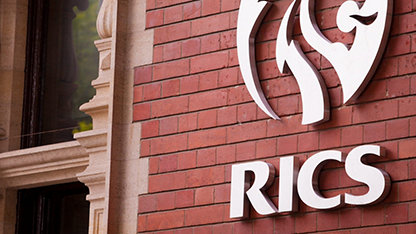As Wales gears up for the Welsh Labour leadership election, and ultimately a new First Minister in mid-March, RICS have analysed the manifesto of the two leadership contenders, Jeremy Miles MS, and Vaughan Gething MS, and what it means for the built and natural environment.
Across both candidate pledges, there are a lot of similarities, especially when it comes to M4 corridor infrastructure, criticism of Welsh funding for HS2 and a commitment to housing – including new build homes, leasehold reform, and the retrofitting of stock.
It is noticeable the weight given in the language of the manifestos towards trade union support, workers’ rights, and co-operatives. While both candidates are committed to improving the supply of new homes, both contenders limited themselves to focusing on social housing delivery, rather than committing to improving privately rented or owner-occupier stock at scale.
Climate change and meeting net zero underpins both candidates’ commitment – including investment in skills and training, or more specifically apprenticeships, to meet demand, reaffirming commitments towards the contentious Sustainable Farming Scheme and investing in onshore and offshore renewable energy – taking advantage of Wales unique geographic position.
Highlights of the candidate manifestos include:
Jeremy Miles MS
- Launch of the Good Green Growth economic stimulus package to refocus capital investment and procurement.
- Extend the Development Bank of Wales remit for supporting green investment.
- Invest in net zero and digital skills by restoring funding to the apprenticeship and degree apprenticeship programme and expand Personal Learning Accounts.
- Introduce a statutory target to reverse the decline in biodiversity.
- Create a new environmental governance body and introduce legislation to embed environmental protection into Welsh law and recommit to implementing current and future carbon budgets.
- Explore community shareholding in renewable energy, and explore new opportunities with hydro, tidal and wave technology – including floating wind.
- Expand retrofitting and energy-efficiency improvements for homes and buildings.
- Introduce new governance and legislation to support coal tip safety.
- Commit to implementing the final tiers of the Sustainable Farming Scheme.
- Explore new Rent-to-own models, cooperative housing, opportunities to bring vacant properties back into use and reaffirm the commitment to creating 20,000 new low-carbon social homes.
- Increase resourcing in planning departments and introduce pattern books for faster planning approval, and reform the leasehold and freehold system in Wales.
- Progress plans for the delivery of the Metro scheme, implementation of the Burns Commission recommendations to relieve M4 pressure and commitment to new investment in active travel and EV infrastructure.
Vaughan Gething MS
- Task Net Zero Industry Wales to identify where Wales has a competitive advantage – including investment in tidal and semiconductor jobs.
- Expand Green Business Loans to have businesses decarbonise and improve their energy efficiency.
- Review the Agricultural Advisory Panel to ensure it is truly independent and introduce a living wage for the agriculture sector.
- Support high streets by accelerating the rollout of banking hubs, doubling the number of worker-owned businesses and directing more procurement towards co-operatives and social enterprises.
- Introduce a new Nature Positive Bill, including statutory targets for the protection and restoration of nature – including payment structures for farmers in return for delivering public goods.
- Investment in mitigation for communities facing flooding, coastal erosion and other climate-related risks, and greater support with coal tip safety.
- Boost innovation in the creation of green social housing including modern and modular construction methods and work with the built environment industry to address skill shortages and new education and training opportunities and set up an Affordable Homes Taskforce to expedite planning backlogs.
- Expand retrofitting across housing tenures with the support of private financing and piloting the creation of local retrofitting networks, and co-operatives for SMEs to enter public sector retrofitting contracts.
- Enhance the work of the Renters Reform (Wales) Act to strengthen tenant rights including no pet clauses, explore a system of rent control that doesn’t reduce supply and introduce leasehold and freehold reform.
- Create a regulated bus network and introduce franchising to support communities reliant on bus services and commit to a Swansea Bay metro and expansion of North Wales travel infrastructure.
- Invest in new active travel, EV, and integrated travel infrastructure, including fare reduction schemes – as well as implementing the recommendations of the Burns Commission along the M4 corridor.
For RICS, both candidates offer a range of pledges that support what we have previously called for in our last Senedd election manifesto and upcoming UK General Election.
Regardless of who wins, while their visions offer opportunities for investment in the built environment, they also present challenges – including reform to leaseholds, the private rental sector, and ongoing changes to agricultural and land funding support.













